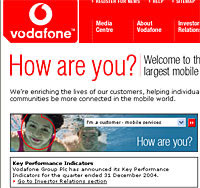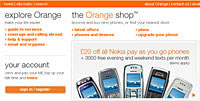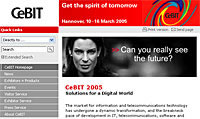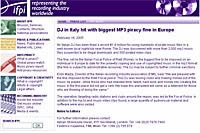 A coalition of government policy makers, technology and broadband companies from China have rocked up to the NAB2005 Media Show in Las Vegas.
A coalition of government policy makers, technology and broadband companies from China have rocked up to the NAB2005 Media Show in Las Vegas.
They’re in town to invite opportunity-seeking US companies to supply programming and interactive content to the Chinese coalition-backed IDV Global Media On-Demand platform, expected to launch in China early next year.
Developed by California-based IDV, the platform was a top-secret project until premiered at the China Media-on-Demand Coalition press conference last week in Beijing, and reflects China’s eagerness to create new technologies for the Internet and telecom.
IDV-Global Media – headed by ex-Microsoft’s Xbox game console designer, Kevin Bachus – expects the new technology to allow Chinese media companies to securely distribute programs worldwide, direct from publisher to consumer.
Bachus rose to media attention when he left Microsoft to start a rival games console business, Infinium Labs. Their product, the Phantom Game Service, downloaded game content directly over an Internet connection. Digital-Lifestyles has been covering the Phantom since the start of 2004, from its first demo, through the announcement of its launch, to them receiving a $50 million credit investment.
Some of the press had speculate that Bachus had left Infinium. At the start of this week he issued a statement denying that he had left Infinium for IDV Global Media.
Duncan Clark, managing director of the Beijing-based consulting firm BDA China Ltd., warned that IDV-Global Media will need support from a range of participants, including telecoms, media and electronics companies (and the government agencies that regulate them) for the project to work.
“What this initiative claims to attain, aligning the interests of many different players in the value chain, is something that has eluded many a media mogul outside China,” Clark sagely added.
IDV GMOD’s platform is an end-to-end solution that includes a second generation PC with a 3D “platform-on-platform” architecture developed by IDV – the first system to receive certification from China as the standard for second generation PCs.
Content will be delivered to consumers by digital feeds from global sources, including a next generation Internet, based on the IPv6 technology, with revenue sharing arrangements for partners.
This system will supply sports events, movies, TV shows, next gen games and other interactive entertainment direct to private residences or hotel rooms worldwide, with the same interface, in High Definition (HD) quality video.
The wonderfully named Dr Fan Yeqiang, deputy director of the China Institute of Policy Studies (CIPS), said in a statement, “Now US media publishers and distributors have a direct platform on which to earn millions of dollars in incremental revenues from their content in the China market. We are offering a safe, certified delivery system never available to US media companies before.”
 A hard drive, containing confidential data belonging to the Brandenburg police in Germany, was auctioned over eBay and bought by a student from the city of Potsdam for €20 (us$25/£14) according to a report by Spiegel, a leading weekly German newspaper.
A hard drive, containing confidential data belonging to the Brandenburg police in Germany, was auctioned over eBay and bought by a student from the city of Potsdam for €20 (us$25/£14) according to a report by Spiegel, a leading weekly German newspaper. Last year, mobile security specialists Pointsec bought a load of hard drives off Internet auctions like eBay to find out how much sensitive company information they could unearth (and publicise their expertise in the bargain, natch).
Last year, mobile security specialists Pointsec bought a load of hard drives off Internet auctions like eBay to find out how much sensitive company information they could unearth (and publicise their expertise in the bargain, natch). Last week, deputy Director-General Mr Broesterhuizen of the Dutch ministry of Economic Affairs officially opened the Netherland’s largest Fiber-to-the-Home (FttH) network in Nuenen, a village in the south of The Netherlands.
Last week, deputy Director-General Mr Broesterhuizen of the Dutch ministry of Economic Affairs officially opened the Netherland’s largest Fiber-to-the-Home (FttH) network in Nuenen, a village in the south of The Netherlands. By summer 2005, approximately 16,000 FttH connections will be up and running in the Kenniswijk area, with over “100 innovative services” being developed, of which 50 are already available.
By summer 2005, approximately 16,000 FttH connections will be up and running in the Kenniswijk area, with over “100 innovative services” being developed, of which 50 are already available. As of early May, Dutch Vodafone customers will be able to say ‘nr!’ to saucy adult content offered via Vodafone live! from their mobile phone.
As of early May, Dutch Vodafone customers will be able to say ‘nr!’ to saucy adult content offered via Vodafone live! from their mobile phone. With hand-rubbing porn-shifters keenly eying up a growing – and lucrative – mobile multimedia market, it makes sense for telcos to be able to reassure parents that young Timmy’s new handset isn’t going to become a mobile gateway into the portals of smut.
With hand-rubbing porn-shifters keenly eying up a growing – and lucrative – mobile multimedia market, it makes sense for telcos to be able to reassure parents that young Timmy’s new handset isn’t going to become a mobile gateway into the portals of smut. Microsoft has agreed – with all the enthusiasm of a child being made to eat spinach – to adopt all the “main changes” requested by the European Commission to its new version of Windows without Media player components.
Microsoft has agreed – with all the enthusiasm of a child being made to eat spinach – to adopt all the “main changes” requested by the European Commission to its new version of Windows without Media player components. Horacio Gutierrez, a lawyer for Microsoft, was clearly not too happy, telling Reuters that the company has “some misgivings about the chosen name, as we fear it may cause confusion for consumers about the product, but we will adopt the Commission’s name in order to move forward and accelerate the pace of the implementation process.”
Horacio Gutierrez, a lawyer for Microsoft, was clearly not too happy, telling Reuters that the company has “some misgivings about the chosen name, as we fear it may cause confusion for consumers about the product, but we will adopt the Commission’s name in order to move forward and accelerate the pace of the implementation process.” And there’s more! Microsoft are also in disagreement with the EU over plans to appoint a trustee to monitor Microsoft’s compliance (or the complete lack of) – if the company fail to comply with the Commission’s decisions, they could face a daily slapdown of up to US$5 million – the equivalent of a cup of coffee in Bill Gates’ world.
And there’s more! Microsoft are also in disagreement with the EU over plans to appoint a trustee to monitor Microsoft’s compliance (or the complete lack of) – if the company fail to comply with the Commission’s decisions, they could face a daily slapdown of up to US$5 million – the equivalent of a cup of coffee in Bill Gates’ world. Mobile operator Orange has announced a GSM-based tracking service which it claims is both cheaper and easier to use than GPS technology.
Mobile operator Orange has announced a GSM-based tracking service which it claims is both cheaper and easier to use than GPS technology. Electronic Tracking Systems (ETS), makers of battery powered security tracking devices under the mtrack brand, is one of the first to pilot the product.
Electronic Tracking Systems (ETS), makers of battery powered security tracking devices under the mtrack brand, is one of the first to pilot the product. The world’s leading technology tradeshow, CeBIT, starts this Thursday in Hannover, north Germany with pundits expecting the show to reflect the recent stellar growth in the $2 trillion technology industry.
The world’s leading technology tradeshow, CeBIT, starts this Thursday in Hannover, north Germany with pundits expecting the show to reflect the recent stellar growth in the $2 trillion technology industry. As VoIP (Voice over Internet Protocol) continues to gain in popularity, there’ll be dozens of companies showcasing devices to make free calls as well as displays of corded and cordless Skype phones by Siemens, Motorola, Good Way Technologies and Greatwall Infotech.
As VoIP (Voice over Internet Protocol) continues to gain in popularity, there’ll be dozens of companies showcasing devices to make free calls as well as displays of corded and cordless Skype phones by Siemens, Motorola, Good Way Technologies and Greatwall Infotech. Jens of Sweden has unveiled its latest cool digital music player which they reckon will give iPod Shuffle a run for its money.
Jens of Sweden has unveiled its latest cool digital music player which they reckon will give iPod Shuffle a run for its money. A “well known” Italian DJ could be hit with a record-breaking fine of up to 1.4 million euros ($1.8 million, £968,000) for using thousands of pirate music files in a nightclub near Rome, police said on Wednesday.
A “well known” Italian DJ could be hit with a record-breaking fine of up to 1.4 million euros ($1.8 million, £968,000) for using thousands of pirate music files in a nightclub near Rome, police said on Wednesday. Siemens are planning to make a big splash at the upcoming CeBit in Hannover, Germany.
Siemens are planning to make a big splash at the upcoming CeBit in Hannover, Germany.